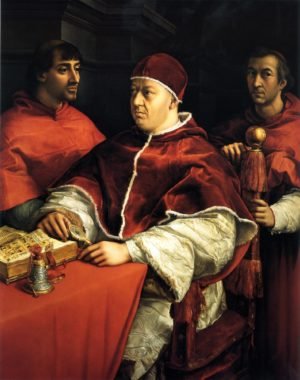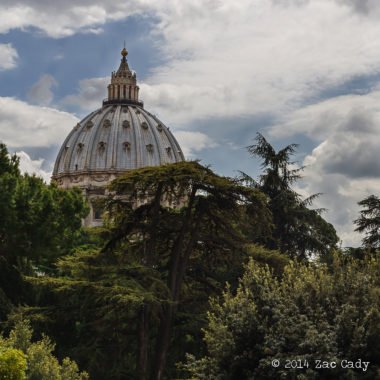The Elephant Under The Vatican
There's an elephant a Pope's elephant covered under the Vatican. Of all every one of the fortunes underneath this sacred ground, for example, the Vatican necropolis and the tomb of Saint Peter, this might be the most amazing and unforeseen. What's more, in the event that you've been on a Vatican visit, you've likely looked at the region where the pachyderm was covered, the Belvedere Courtyard.
The Pope's Elephant
Be that as it may, how did this elephant, whose name was Annone (Hanno in English), turned into an inhabitant of the Vatican State?
The succession of occasions takes us back to 1514, when King Manuel I of Portugal sent an uncommon white elephant to Rome as a blessing to praise the race of Giovanni de Medici to the ecclesiastical soil as Leo X.

The Portrait of Pope Leo X with two Cardinals
"That is the ideal sixteenth-century risposte to the inquiry 'What completes one get the man who has everything?'" says Agnes Crawford, one the workmanship history specialists who drives our Vatican city visits.
The fourth offspring of Lorenzo Medici, Leo X is best associated with his vigorous help to expressions of the human experience. Under his supervision, the flawed, yet normal at the time, routine with regards to conceding liberalities in return of gifts achieved a pinnacle.
"He's credited with having said 'Given us a chance to appreciate the papacy since God has offered it to us,'" says docent Gregory DiPippo. "His part as a supporter of expressions of the human experience is verifiable, as you would anticipate from an individual from the Medici family," he includes. "Whoever had an aptitude in human expressions everywhere—drawing, painting, music, verse and came to Rome, would discover work with Leo X."
Hanno the Elephant, after Raphael

The Pope's elephant soon turned into the pope's most loved pet, and a genuine sensation for the entire nation. Everybody needed to get a look at him. The pope consented to have the inquisitive come see the quadruped on ends of the week, at the Belvedere Courtyard. After landing to Rome, "the parade that was following behind day by day expanded in estimate, supplemented by specialists from the towns, workers from the fields, and noble men from their manors. All were interested, ardently looking for a perspective of the colossal creatures and the outsiders talking a weird dialect who went with it." (Silvio Bedini, The Pope's Elephant)
The Elephant's Death
In any case, the Pope's elephant didn't live long in the Eternal city. Following two years, most likely in light of an impeding eating routine, he created excruciating blockage. The rich-in-gold suppository controlled to treat him rushed the poor creature's initial death. Leo X, crushed by his passing, appointed Raphael a fresco (now lost) delineating the elephant. He additionally composed a memorial inscription in his respect.
Likewise artist Pietro Aretino swung to composing. His humorous paper called 'The Last Will and Testament of The Elephant Hanno' had him prohibited from Rome for a portion of the envisioned terms of said 'will'. "Pietro was, obviously, dispatched from Rome before long after the distribution," says docent Hilary Bockham. "However, it propelled his name, notoriety and future achievement astoundingly."

The Elephant Under the Vatican
In February 1962, amid development works at the Belvedere yard, specialists found the bones of a baffling creature, which they accepted to be a dinosaur at first. Advance examination uncovered that rather it was an elephant, anyway very little examination took after until the 1980's and 1990's, when Silvio Bedini investigated the discoveries. He distributed the outcomes in a booked titled The Pope's Elephant.